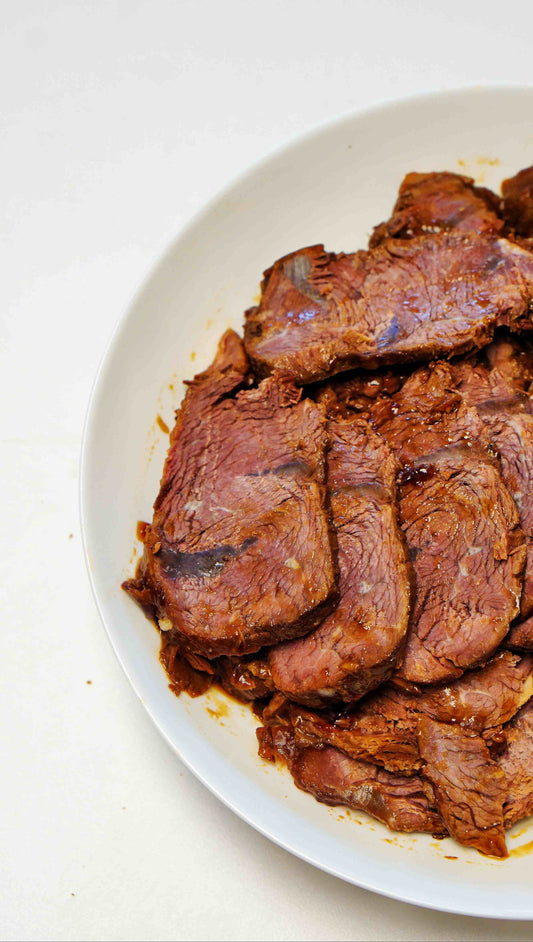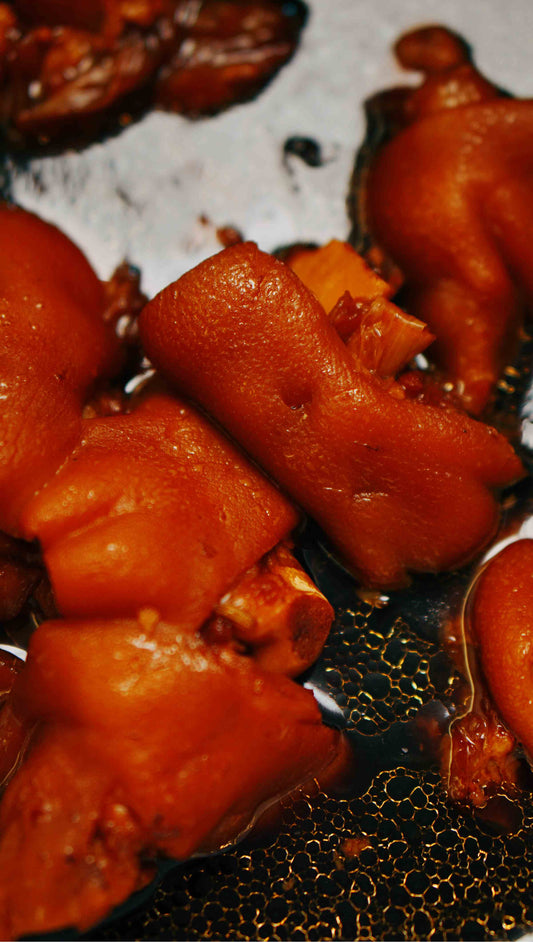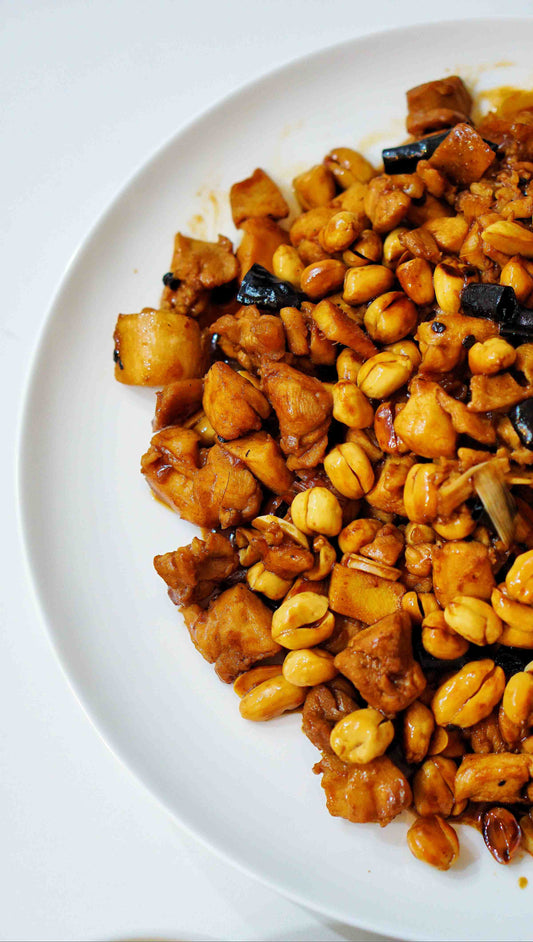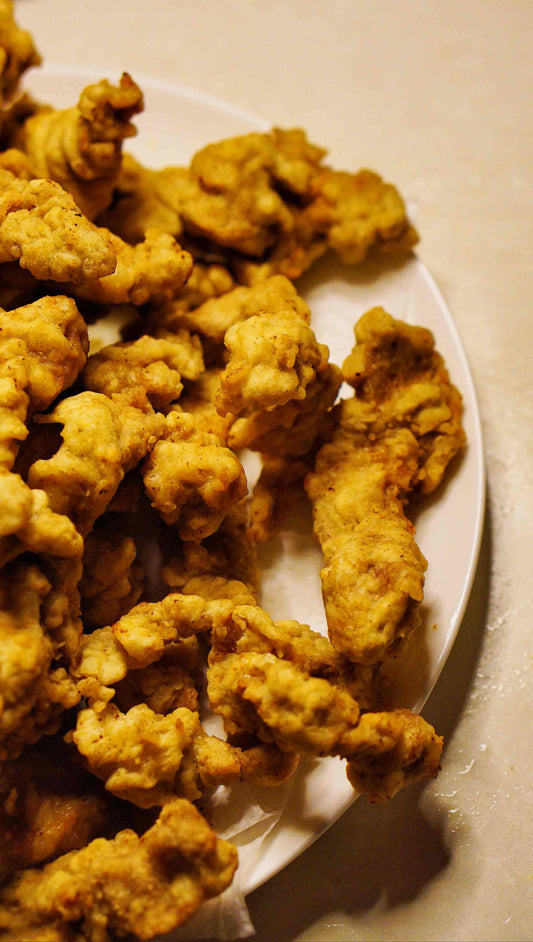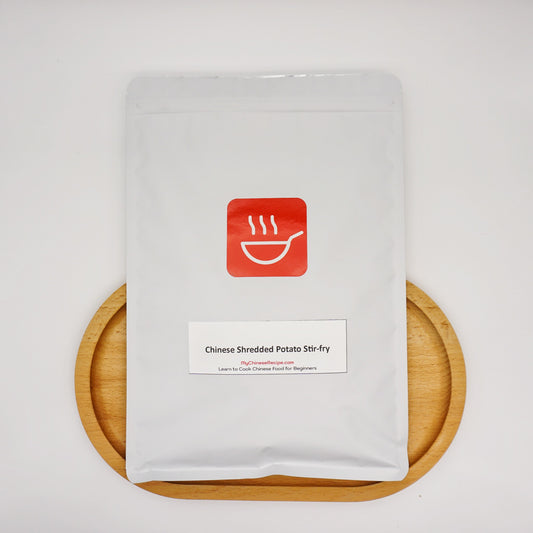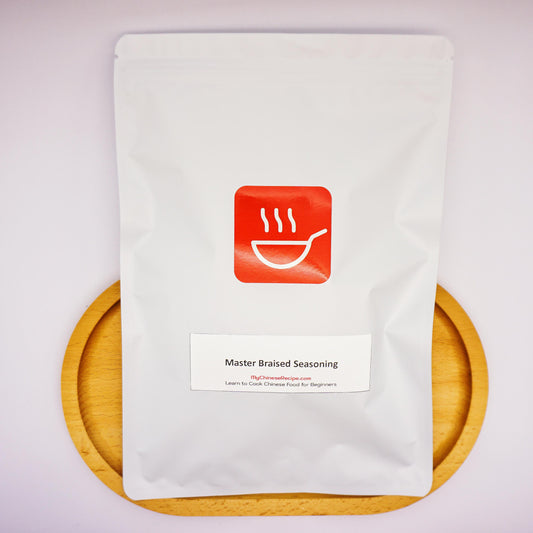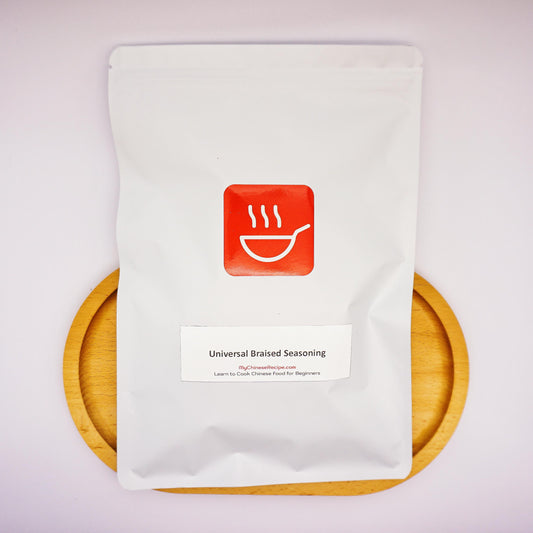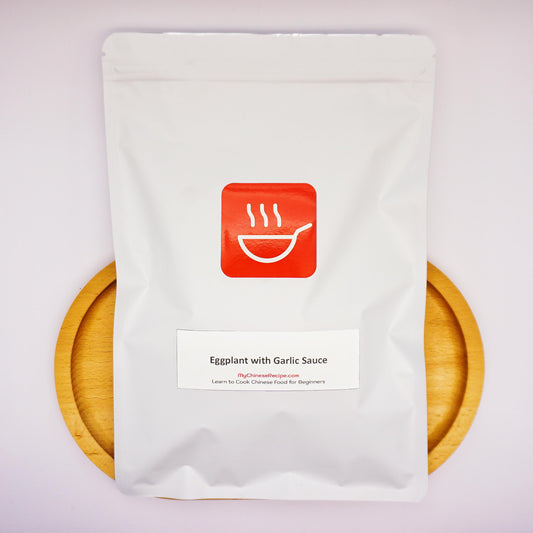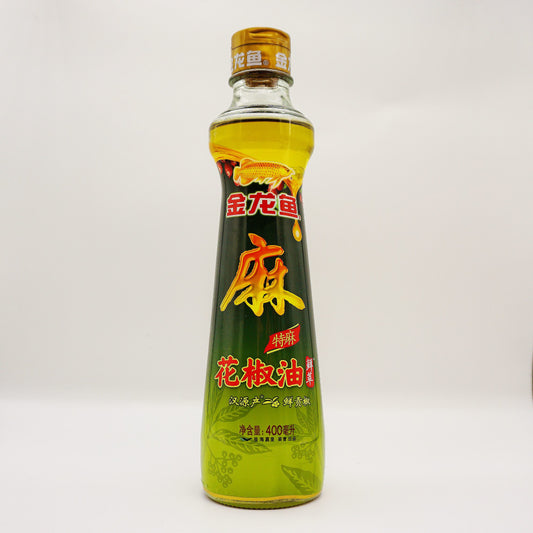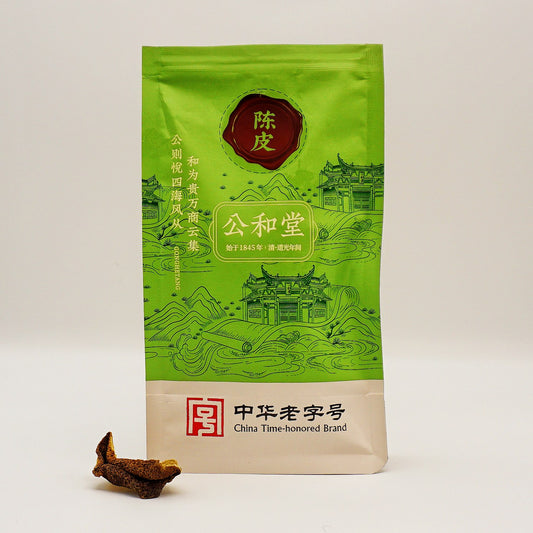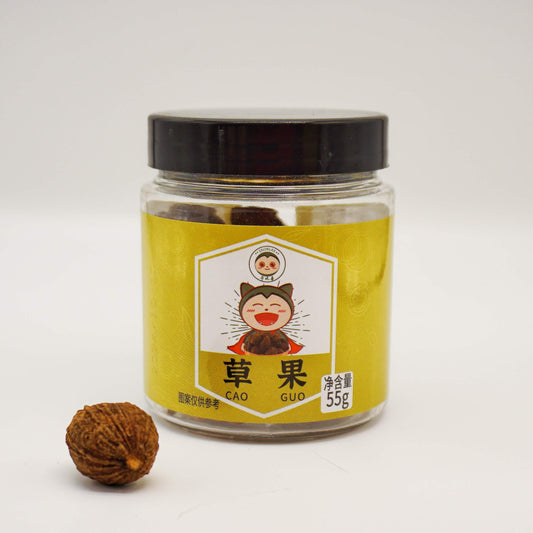
My Chinese Recipe Menu
- How I Feel About This Chinese Braised Beef Shank
- Story Behind Chinese Braised Beef Shank
- Original Name
- Cooking Tips
- Cooking Time
- Ingredients to Make Chinese Braised Beef Shank
- Food
- Seasonings
- How to Make Chinese Braised Beef Shank
- Preparation
- Cooking
How I Feel About This Chinese Braised Beef Shank
Unlike other braised dishes, this braised beef shank is a cold dish in most restaurants. But it tastes better when it's hot in my opinion. I usually see this dish during the Chinese New Year. We don't cook this braised beef shank very often at home because it's really time-consuming. Sometimes, you are just gluttonous about this dish. It is worth the time spent.
This dish might use the most spices than any other dishes. This recipe is a full version spices for braised dishes. You might use this recipe to cook other braised meats which would also be flavorful and tasty.

Story Behind Chinese Braised Beef Shank
I found 2 stories about the braised beef shank.
Braised beef shank originated in the mid-Qing Dynasty and was created by Liu Lu, a Hui Muslim from Cangzhou in Hebei Province. Liu initially sold braised beef from a pushcart in the town of Guihua, later establishing his shop “Wan Sheng Yong” dedicated to soy-braised beef. Known for his meticulous ingredient selection and generous use of spices, Liu’s braised beef became famous nationwide for its rich, savory flavor by the late Qing Dynasty.
The second story with records dating back to the Warring States period. At that time, it was primarily used as a military ration, valued by soldiers for its easy preservation and portability. Over time, the preparation methods for soy-braised beef were refined, and it became a beloved traditional food among the general public.
Original Name
- Translated English Name: Chinese Braised Beef Shank / Soy-Braised Beef
- Original Chinese Pronunciation: Jiang Niu Rou 酱牛肉
Note: You may use the Chinese name to order in China because the translated English name of the dishes might be different in every restaurant.
Cooking Tips
- Prepare all the seasoning in advance
- Prepare the beef shank one date before you want to cook it
- I used 2 tsp Sichuan pepper in video but it's better to be 1 tsp regular Sichuan pepper and 1 tsp green Sichuan pepper for better flavor.
Cooking Time
Prep Time: 10 mins
Cook Time: 40 mins
Total Time: 50 mins
Ingredients
Serving: 5
Food
Beef Shank — 1500g/53oz
Green Onion — 1 piece
Ginger — 6 slices
Seasonings
Blanching
Sichuan Pepper — 1 tbsp
Cooking Wine — 4 tbsp
Salt — 1 tsp
Braising
Cooking Wine — 2 tbsp
Light Soy Sauce — 4 tbsp
Dark Soy Sauce — 4 tbsp
Soybean Paste — 4 tbsp
Rock Sugar — 15g/0.53oz
Cinnamon — 3g/0.1oz
Star Anise — 2 piece/2g/0.7oz
Bay Leaf — 2 pieces
Fennel — 1 tsp
Galangal — 1 piece
Amomum — 1 piece
Cardamom — 1 piece
Tsaoko — 1 piece
Orange Peel — 6 slices /1 big piece
Sichuan Pepper — 1 tsp
Green Sichuan Pepper — 1 tsp
How to Cook Chinese Braised Beef Shank
Preparation
1. Soak the beef shank in enough water to cover it for 5-6 hours.
2. In a frying pan, roast 1 tsp Sichuan pepper.
3. Place the beef shank in a large bowl, add ginger slices and green onion, along with the roasted Sichuan pepper, salt, and cooking wine. Massage everything well, then refrigerate overnight.

Cooking
1. Put beef shank with ginger, green onion and Sichuan pepper into a pot and boil. Then rinse and drain the beef shank. (This step is called blanching. It is used to remove the fishy smell, blood, and impurities, making beef shank more delicious. )

2. Place the cooking wine, light soy sauce, dark soy sauce and soybean paste in a bowl. Place the rock sugar, cinnamon, star anise, bay leaf, fennel, angelica root, galangal, amomum, cardamom, tsaoko, clove, orange peel and the green sichuan pepper in a plate.

3. Discard the water and move the beef shank to a pressure cooker. Add boiling water and all sauces and seasoning to cover the beef shank. Simmer for 40 minutes. If you don't have pressure cooker, stove top also works. 40 mins for pressure cooker and 2 hours for stove top (low heat).

4. Once cooked, leave the beef in the broth to enhance the flavor. Remove the beef, place it in a bowl, let it cool, then refrigerate before slicing for serving. It would be easier to slice after refrigerating.

5. You may keep the broth and use the broth next time. It's called Lao Tang in Chinese which means old broth. It increases the flavor of the dish if you use the old broth. Usually, we mix the old broth with new ones to cook the dish. Even without the old broth, it still tastes very good.


